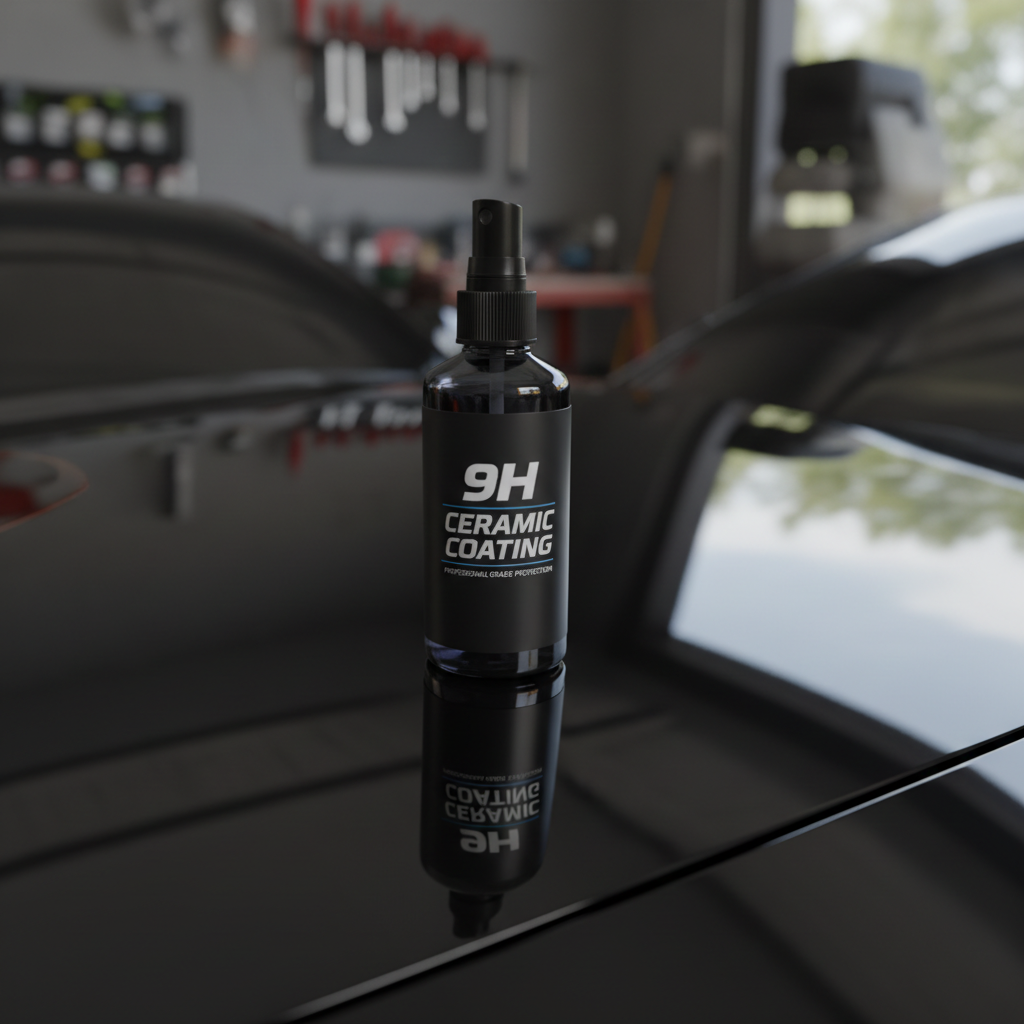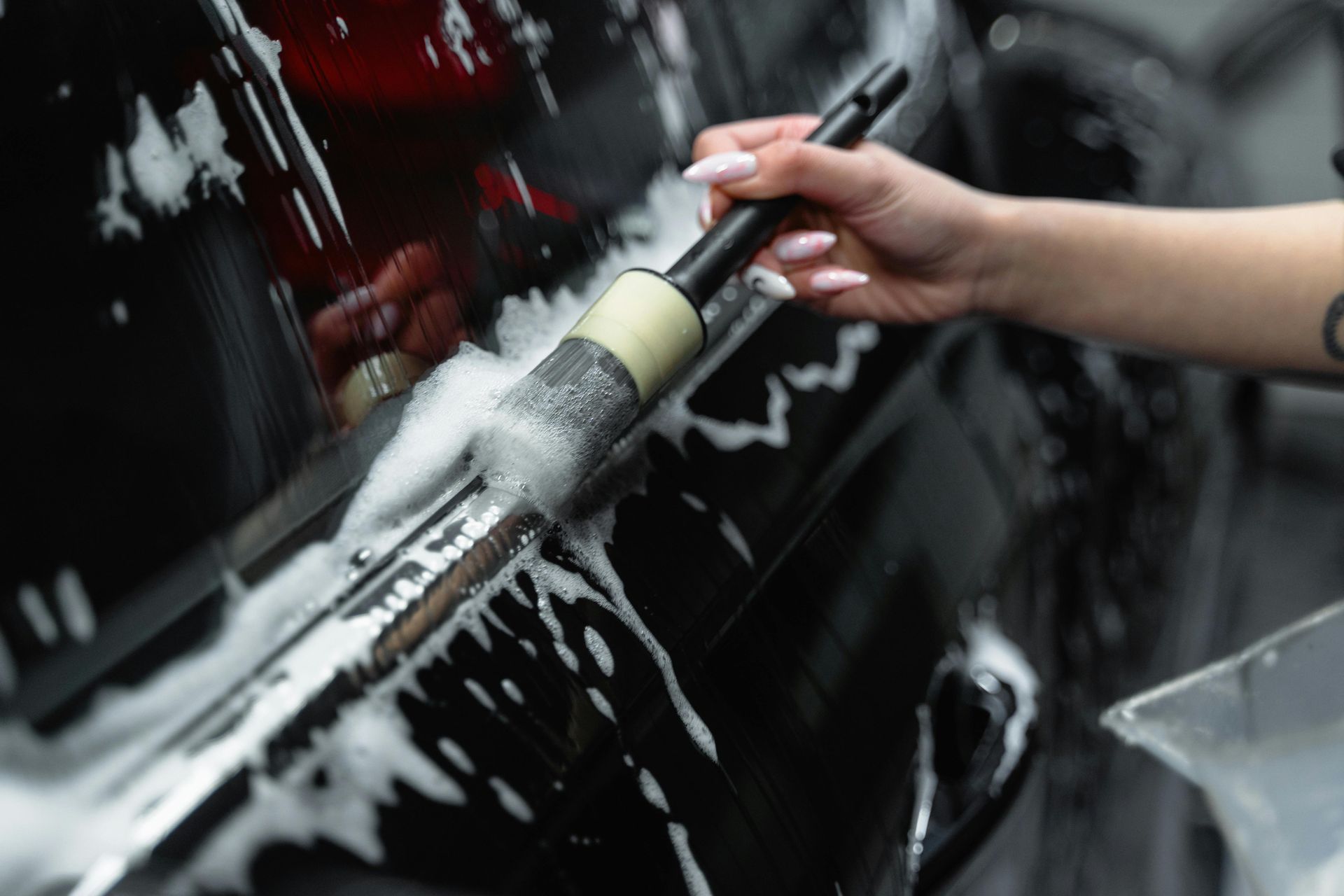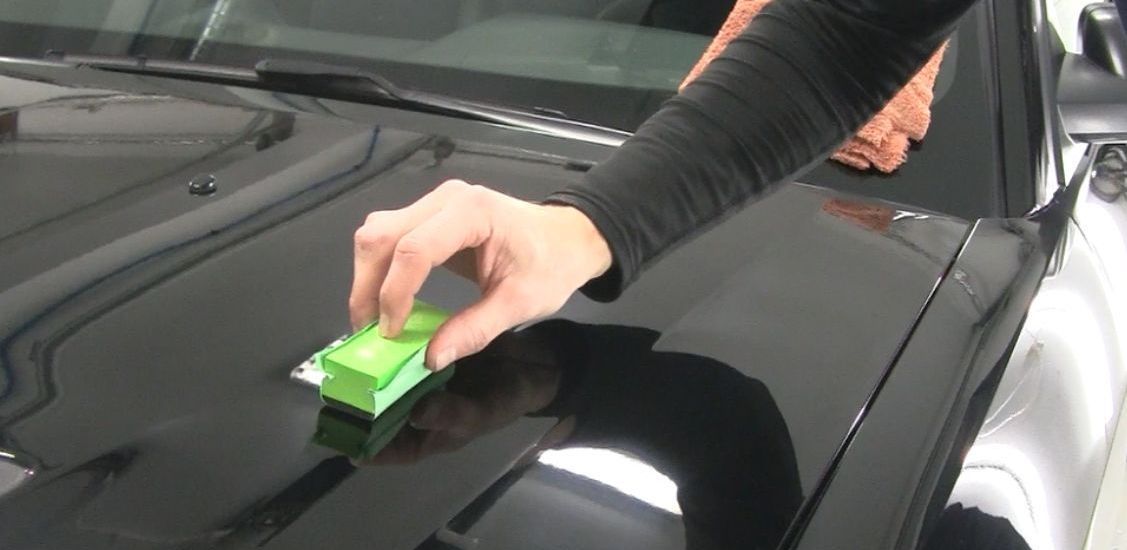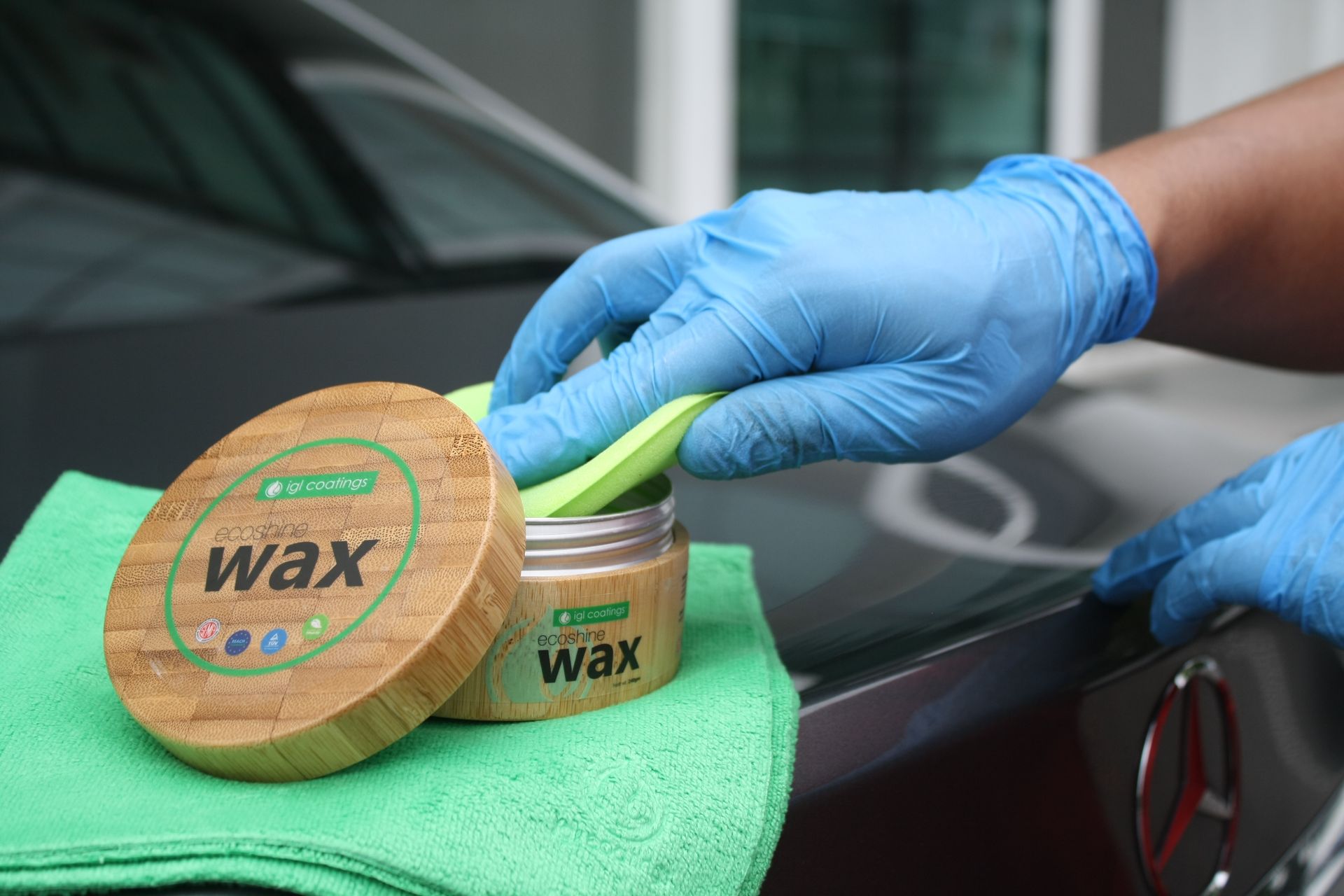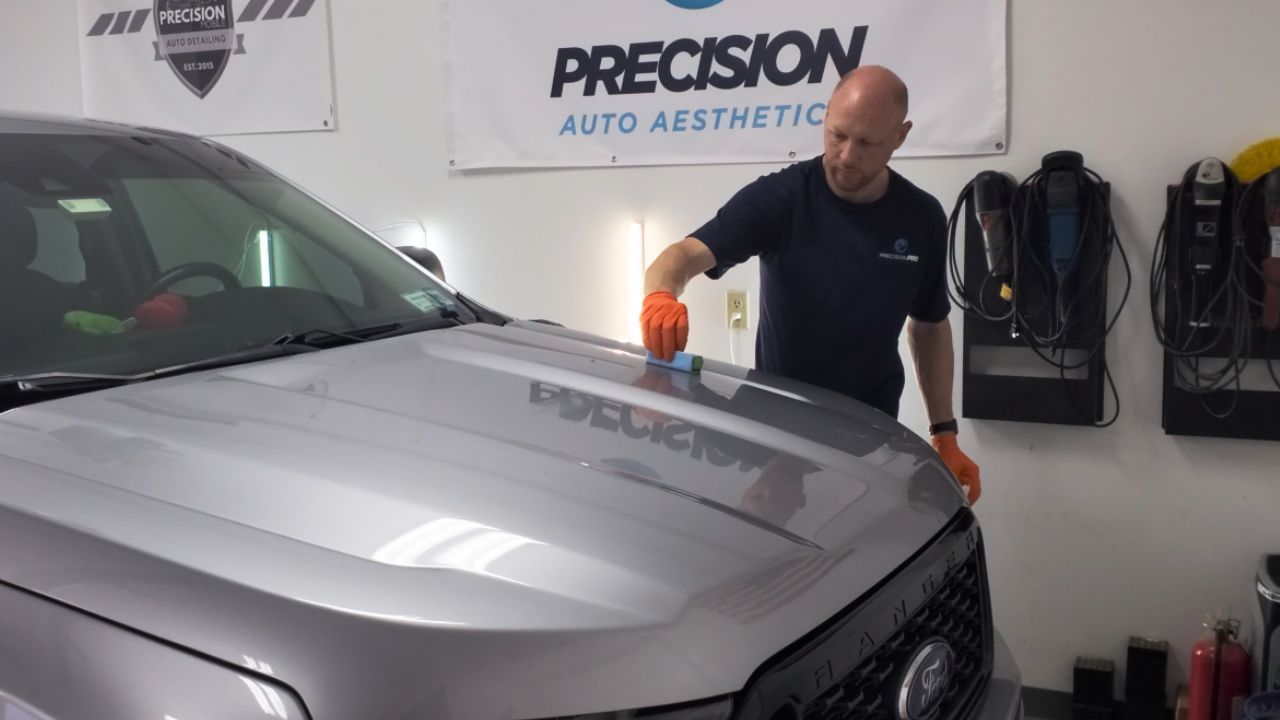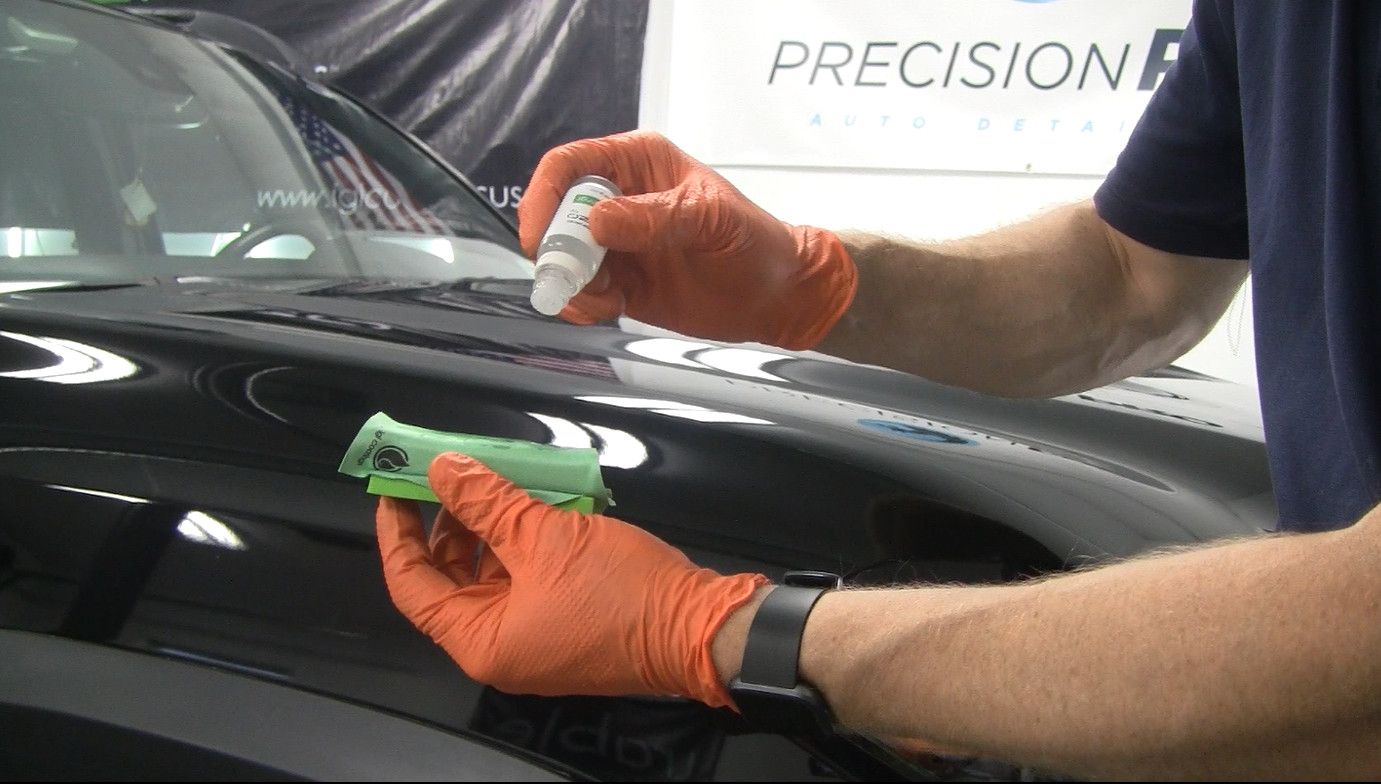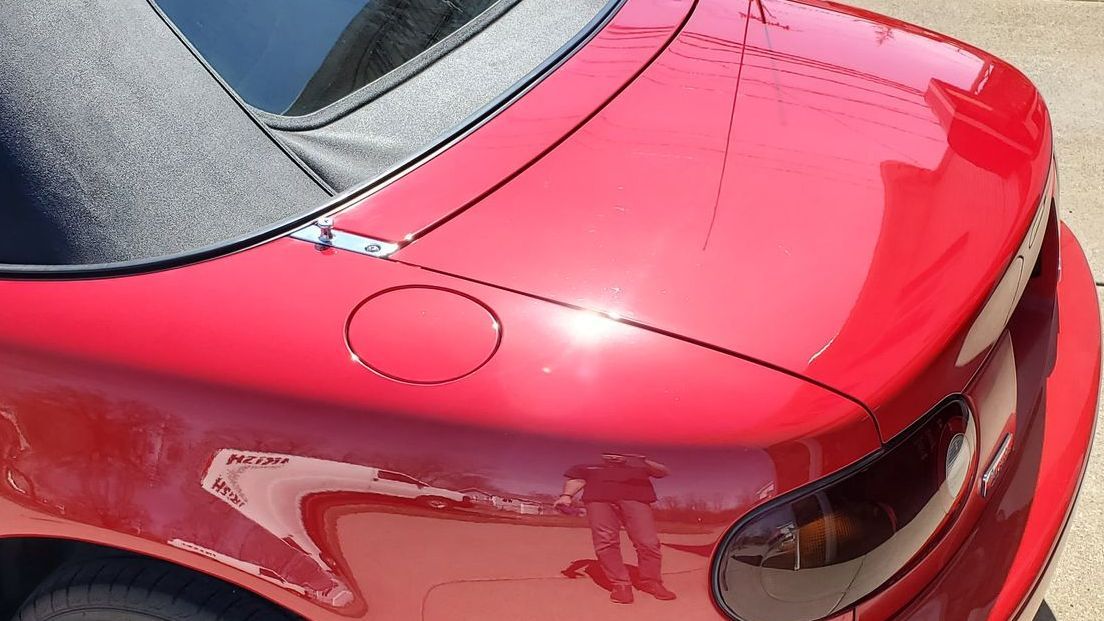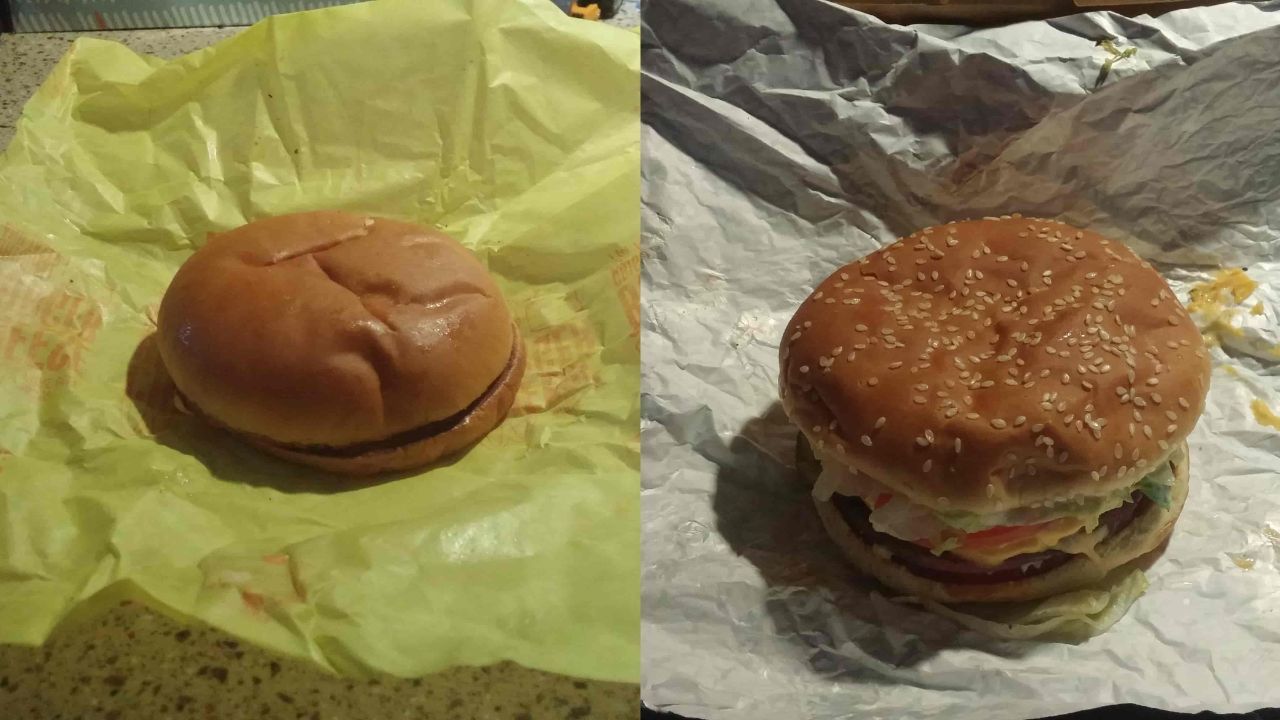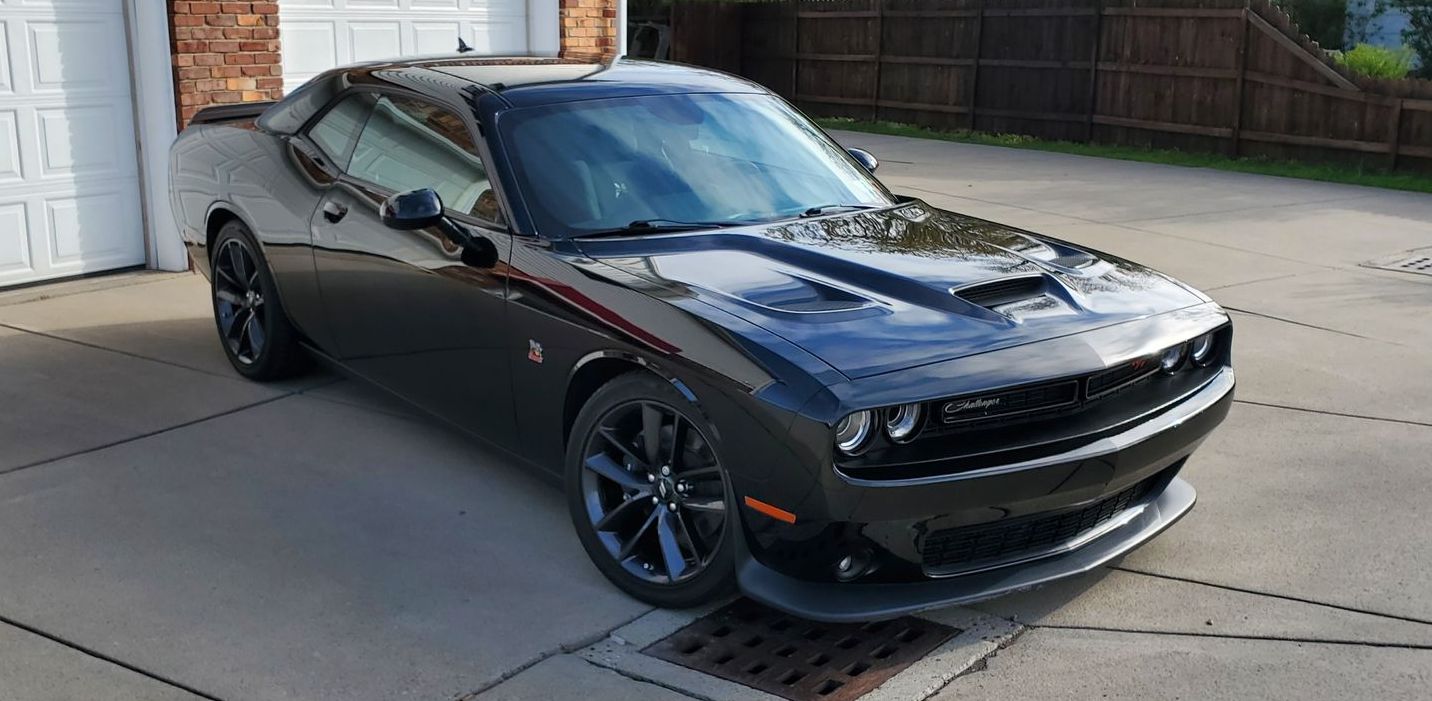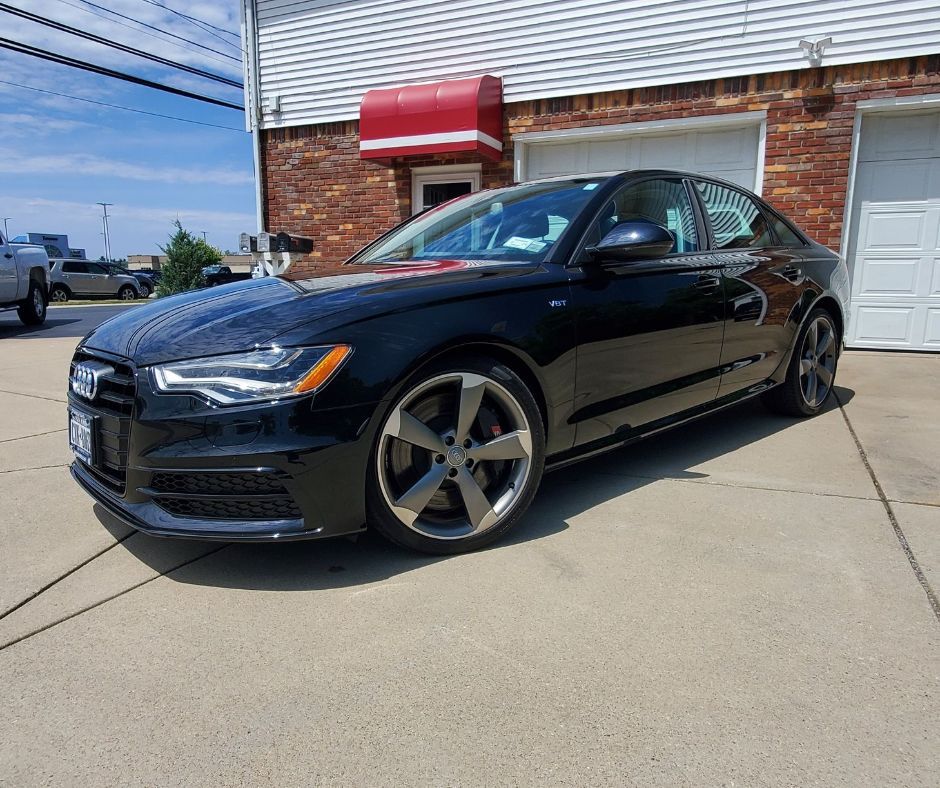DIY Ceramic Coating vs Professional: The Truth About Results [2025]
Updated Nov 21, 2025
Thinking about ceramic coating your car but unsure if the DIY route is really worth it?
Frustrated by the massive price difference between doing it yourself and hiring a pro?
You’re not alone. DIY ceramic kits can cost as little as $70, while professional services range from $600 to $2,000+ depending on your vehicle and its condition.
So why is there such a massive gap — and what are you actually getting for your money?
In this article, you’ll learn the truth behind both options — how they’re applied, what chemistry is involved, how long they last, and how to choose the right fit for your situation.
Whether you’re a car enthusiast or just want long-term protection for your investment, this breakdown will help you make a confident decision.
What You Get with DIY Ceramic Coating
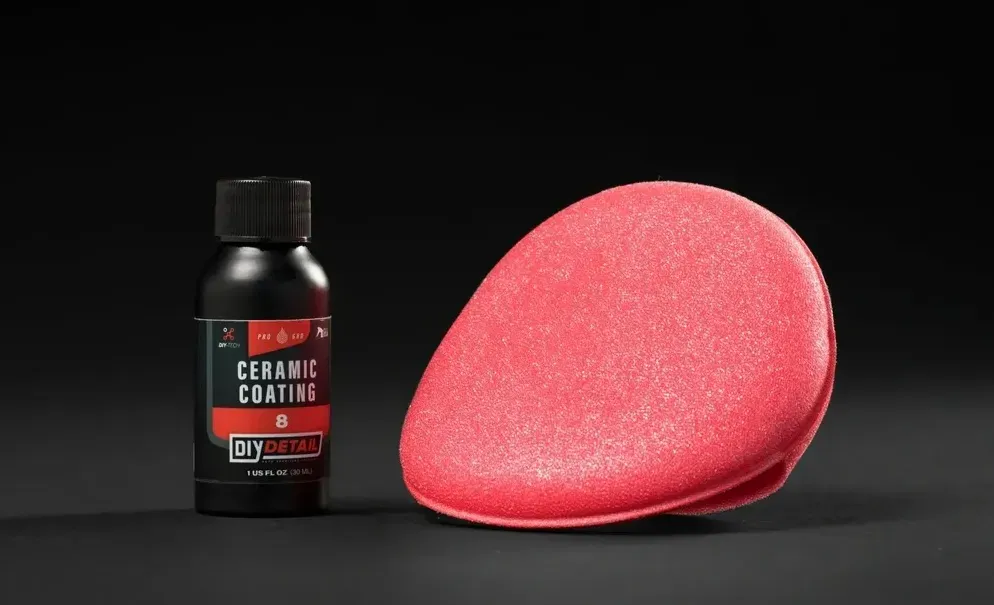
DIY ceramic coating has become popular for a reason: it promises protection without the pro-level price tag.
But what exactly are you getting?
What’s Actually in These DIY Kits
Most kits include a bottle of ceramic coating liquid, applicator pads, microfiber towels, and instructions. Higher-end kits also offer surface prep sprays or boosters for maintenance.
Example:
- Chemical Guys Carbon Force includes the coating and applicators.
- Adam’s Graphene Ceramic Coating Advanced adds gloves, surface-prep spray, and a maintenance booster — helpful for keeping performance high post-application.
But what’s actually inside the bottle? That’s where the biggest differences begin.
The Chemistry of DIY Coatings
The most critical difference is the concentration of Silicon Dioxide (SiO₂) — the ingredient responsible for forming the durable, glass-like protective layer.
DIY coatings typically contain just 20–30% SiO₂, although some claim to reach 70%.
Lower ceramic content = easier application but significantly shorter durability.
🔬 DIY Coating Composition
- SiO₂ (20–30%) – diluted to make application easier
- TiO₂ – adds some UV resistance and transparency
- Polysiloxanes – allow basic surface bonding
- Higher solvent content – improves flow and workability but reduces durability
- More VOCs – extend working time and help correct mistakes
This chemical balance is why DIY coatings are easier to apply — they’re thinner, more forgiving, and cure faster (12–24 hours initial, 5–7 days full cure).
But with that ease comes the trade-off of a shorter lifespan.
Even a DIY coating with higher ceramic content that increases the lifespan, it will still become more difficult to work with.
The DIY Options That Stand Out
Turtle Wax Hybrid Solutions simple spray solution that offers solid water repellency for just $18.
Gtechniq EXO offers up to 2 years of protection.
DIY Detailing's higher-end DIY options claim up to 5 years of protection.
Why DIY Gets Tricky Fast
Just like professional coatings, prep and application is where DIY jobs can fall apart.
Before you coat, your paint needs to be cleaned, decontaminated, and often polished.
Both coatings typically require:
- Temperatures between 50–80°F
- A surface that's as clean as possible
- 12-24 hours of initial cure (possibly longer)
- 1 weeks to fully cure (again, possibly longer)
Ceramic coatings can all be different from application to how they react as they bond to the surface.
They all can suffer from high spots (streaking) and premature failure.
Understanding that particular coating and working in small areas until you got the hang of that coating will go a long way to great results.
What You Get with Professional Ceramic Coating
If DIY is about saving, professional coating is about lasting.
The real value isn’t in the coating — it’s in the prep.
How Pro Coatings Are Applied
Professionals follow a multi-step process to ensure your vehicle’s finish is flawless.
These should be the same steps you would take for a DIY coating:
- Deep clean and decontaminate every surface
- Perform full paint correction to remove swirl marks and scratches (What is Paint Correction?)
- Wipe down with panel prep chemicals
- Apply the coating
- Cure under controlled conditions
This takes 6-16 hours of prep and 3-4 hours of application — not including cure time.
Just like your DIY Prep, the amount of time will vary depending on the vehicle condition.
Professional vs DIY Chemistry: Why the Results Are So Different
To fully understand the performance gap, you have to look at how professional coatings are built differently.
Professional Ceramic Coating Chemistry
Professional-grade coatings contain SiO₂ concentrations of 70%–100%, depending on the brand and formulation.
While the higher ceramic content does lead to a more durable longer-lasting coating, it also makes the coating more difficult to work with.
🔬 Professional Coating Composition
- SiO₂ (70–100%) – dramatically higher concentration
- TiO₂ – provides UV protection and maintains clarity
- Polysiloxanes + proprietary polymers – boost adhesion and chemical resistance
- Low-VOC or zero-VOC formulations – fewer solvents, higher performance
- Thicker viscosity – harder to apply, less forgiving, but longer lasting
Most detailers are trained and certified by a coating brand because of that higher concentration of content in a professional coating.
It helps to lower the risk of improper application and problems for the end consumer.
| Property | DIY Coating | Professional Coating |
|---|---|---|
| SiO₂ Content | 20–30% (up to 70% claimed) | 70–100% |
| Application Difficulty | Easy to apply | Requires expertise and controlled conditions |
| Cure Time | 12–24 hrs initial / 5–7 days full | 24–48 hrs initial / up to 30 days full |
| Protective Layer Thickness | Thin, diluted | Thick |
What the Results Actually Look Like
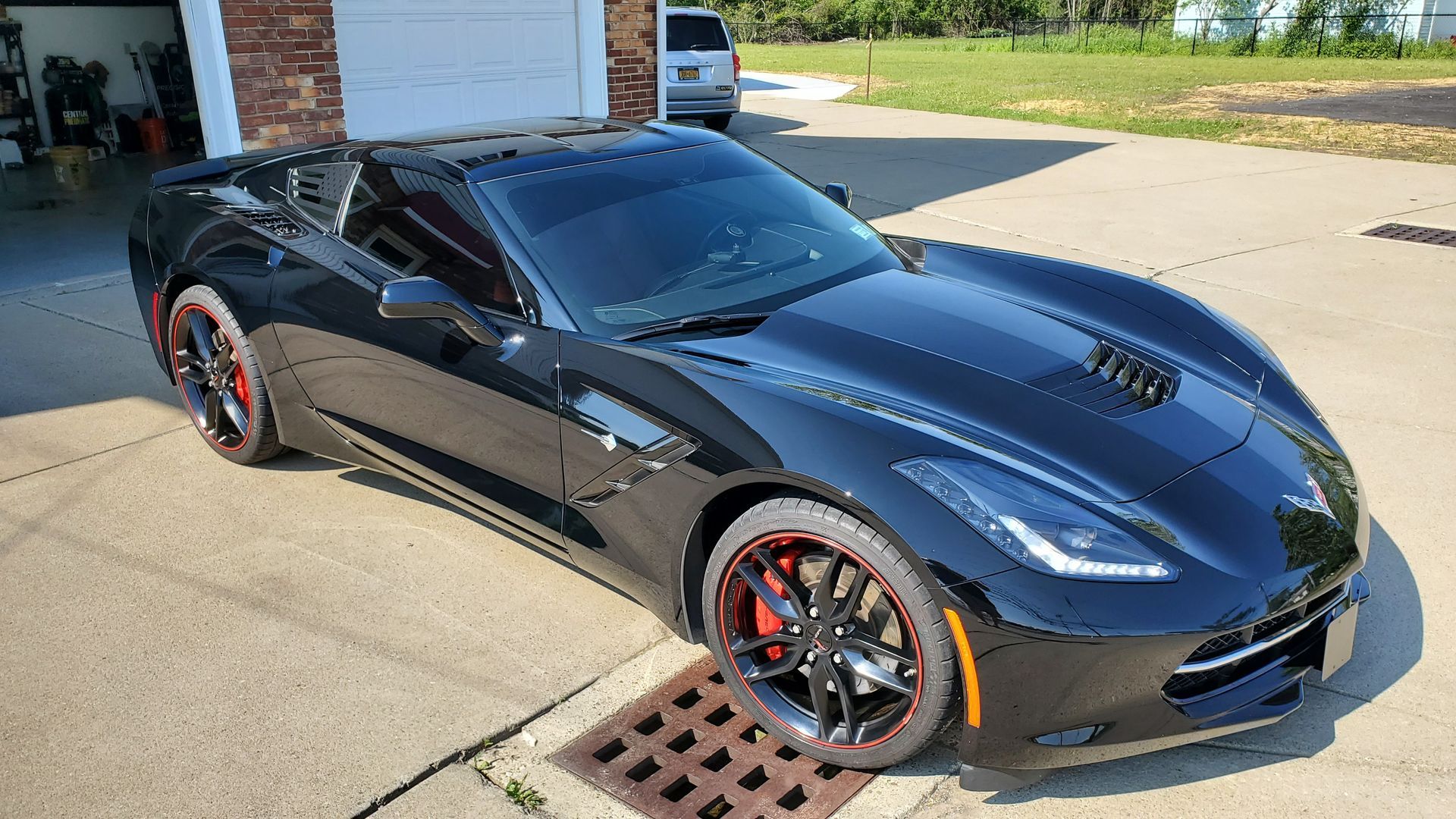
Finish Quality: What You See
The final look of a ceramic coating — that deep, glass-like gloss — depends heavily on the prep work, not just the product.
When applied correctly, both DIY and professional ceramic coatings can deliver an impressive visual result.
What tends to set them apart isn’t the shine itself — it’s how uniform and long-lasting that finish remains over time.
Inexperienced application leads to common DIY issues like streaking, high spots, or uneven coverage. But when prep is done right, and the application is done carefully, many DIY coatings can look nearly identical to pro jobs out of the gate.
Durability: What You Get Over Time
DIY coatings last 1–2 years in general with 3-5+ years on more expensive DIY coatings.
Professional coatings last up to 5 years
or longer depending on coating offered.
Between coatings, performance and durability will vary. Some coatings excel at water beading, while others gloss or chemical resistance.
Making the Right Choice for You
"While DIY options can be cost-effective, they require meticulous preparation and skill to achieve satisfactory results, which may not match the finish provided by a trained professional."
— Infinity Auto Styling
When DIY Makes Sense
DIY is ideal if:
- You’re on a budget
- You enjoy detailing your own car
- You’re experienced in prep work and maintenance
- You own multiple cars and want a hobby project
Just remember: the prep is everything, and shortcuts show quickly.
When Professional Coating Makes More Sense
Go pro if:
- You want results that last 5+ years
- You’re protecting a luxury or long-term vehicle
- You want warranty coverage and expert-level prep
- You care about uniform finish, resale value, or daily driving in harsh conditions
If your car is an investment, it deserves investment-level protection.
DIY vs. Professional Ceramic Coating: Side-by-Side Comparison
| Feature | DIY Ceramic Coating | Professional Coating |
|---|---|---|
| Cost | $50-$200 | $600-$2000+ |
| Durability | 1-2 years | 5-9 years |
| Prep Required | Basic cleaning | Full decontamination + polishing |
| Application Time | A few hours | 15-20 hours prep + 6-12 application |
| Curing | 2-3 weeks | Controlled, same timeframe |
| Warranty | None | 2 years to lifetime |
| Gloss Quality | Variable | Mirror-like, consistent finish |
| Scratch Resistance | Moderate | Superior (based on cchemistry) |
The Bottom Line
Now you know what truly separates DIY ceramic coating from professional-grade work and why the price difference reflects a major difference in prep, chemistry, and results.
You were trying to decide whether saving money upfront would still deliver the lasting protection your car needs. The answer? It depends on your expectations and skill level.
Want to know if professional coating is right for you? Check out our article on how to maintain a ceramic coating. Or book a consultation here.
At Precision Auto Aesthetics, we help owners protect their vehicles with expertly applied ceramic coatings that last for years, backed by a guarantee and results you can see.
Clean. Protect. Maintain.
No matter which route you choose, you’re taking a step toward smarter car care.

